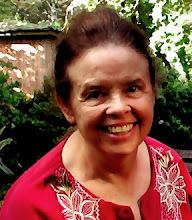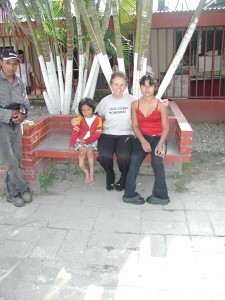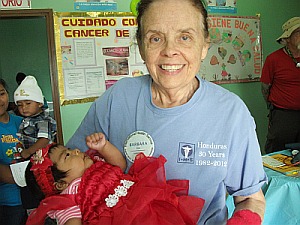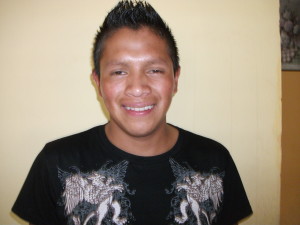


Self-help gurus like to exhort us to take risks, never to give up, be bold, take chances, dream the impossible dream. We are often reminded that nothing ventured, nothing gained. Self-appointed experts, in their promotional books and inspirational talks, cite examples of ordinary folks, just like you and me, who through dogged determination (of course, following the “exclusive” winning formula being peddled) have realized achievements beyond their wildest dreams. These gurus are today’s equivalent of revivalist preachers, always promising a brighter tomorrow.
“Where there’s a will, there’s a way” and, “If you don’t succeed, try, try again,” are some favorite truisms. Perseverance may indeed be a virtue, but following a particular formula and never giving up are not an automatic guarantee of success. Nothing is ever certain. Despite wishful thinking, loss as well as gain is always possible. As the saying goes, “No one grabs the brass ring every time.”
Success can be defined subjectively by whatever someone wants to achieve, or more objectively, according to outside criteria like fame, recognition, and money, or more usually by a combination of both. But just wanting something very badly and trying really hard to achieve it is not a promissory note. Any action undertaken has many possible outcomes and can result in failure as well as success. That’s true of anything: investing in the stock market, taking a new job, buying a house, planting a garden, or getting married. And often what we might define as success is not just due to our own individual efforts, but depends as well on outside forces and others’ contributions.


Obviously, we aren’t likely to embark on a course of action if we expect to fail. And if we don’t make any effort at all, success is not apt to rain down upon us like manna from heaven. Tales of a movie or TV star being “discovered’ while sitting demurely at a lunch counter are alluring, but are about as likely as a lightning strike. We must always be prepared for the possibility that even our best efforts may go nowhere, so a Plan B is required. And sometimes, we need to simply step back, stop trying so hard, and just go with the flow, or even gracefully admit defeat.
During my 76 years of life, like most people, I’ve had my share of what I consider successes: wonderful children, grandchildren, and even a great-grandchild; a variety of interesting jobs; two acclaimed books; fruitful volunteer service including with the Peace Corps in Honduras; solid friendships with people the world over; relatively good health; and a fulfilling late life career now as a Spanish interpreter in hospitals and schools. Over the years, as an Amnesty International activist, I’ve met a number of individuals actually freed from execution, imprisonment, or serious abuses because of our combined efforts, something I would certainly deem a success.
In Honduras, my Peace Corps country, where, in my 60s, I spent 3 ½ years (an extended term) as a health volunteer, I can claim credit for taking some 100 children to have life-changing surgery, mainly for harelip/cleft palate and clubfoot, performed by visiting medical brigades. And while I did not perform their surgery myself, I helped out in the operating room and followed up by monitoring for infection and removing stitches and casts after the surgeons had left. Since my departure from the Peace Corps at the end of 2003, I’ve returned ten times to Honduras to volunteer with medical brigades, including with Operation Smile. People all over that country still run up to me, often greeting me as “Doctora Bárbara” (although I’m not a doctor), thanking me for helping transform their child’s life. Frankly, that’s quite gratifying.
In my most recent book, just out this year, I recount sending life-saving medications for a rare hereditary disease to Armando, a young man in Cuba unable to obtain them there. Finally, to assure his continued health and survival, I decided to bring him to the U.S. via Mexico and he is now living here, an American citizen with regular access to his medications, and is also married, with a loving family. I do give myself a few kudos for that.
However, there have also been admitted failures. I was a very reluctant divorcee who became a struggling single parent. I’ve confronted some pretty risky situations in the Peace Corps, as well as while serving as an election observer abroad and performing volunteer humanitarian and human rights work around the world. But the worst failure of all was not preventing my oldest son’s death. Isn’t a mother’s first duty to keep her own child alive? My son died in at age 27 in 1994 after a work accident. One year later, a Cuban foster son, an unaccompanied minor arriving in 1980 with the Mariel boatlift, died of AIDS. While I was not directly responsible for those premature deaths, as a mother, I had certainly failed to prevent them, something which has forever weighed on my soul, as recounted in both my memoirs (titles below).
Several more recent endeavors have also fallen short. In February, during my annual volunteer visit to Honduras, an effort partially supported by my book sales, I got sad news from a couple I’d been assisting with their baby, a child born with a severe cleft palate and harelip. It turned out that he had died recently from apparent malnutrition, caught in a tragic catch-22 situation; being unable to suck, he had trouble ingesting food and never reached the required weight for undergoing corrective surgery. I also discovered that Bessy, a paraplegic woman for whom I’d obtained a wheelchair, urine bags, and a cellphone, had died of sepsis since my last visit. Two teen mothers I’d been helping with their education had been abandoned by their partners, so had dropped out of school. I had to tell myself, “Okay, suck it up; win some, lose some.” But I couldn’t help feeling discouraged, as these losses seemed almost to eclipse the gains from all my efforts.
Fate or luck admittedly pays a role as well, though it is by definition unpredictable and unexpected, often requiring us either to take advantage of good fortune or respond to a disaster. Two decades ago, in post-Ceausescu Romania, during an evaluation of children’s residential institutions, I snapped a photo of little Gabriela for a magazine article later seen by a couple who ended up adopting her. That fortuitous event transformed the life of Gabriela, with whom I’ve gotten in touch recently through Facebook, finding that she is now a successful college student with a devoted boyfriend. What if I had aimed my camera in a different direction? For Gabriela, that lucky photo was akin to a star’s discovery at a lunch counter.
Anyone reading this might want to take a good look at their own life, both past and present, to tote up its pluses and minuses. There will always be some of both. We all need to take pride in our modest achievements, but also to accept and derive lessons from our inevitable losses. And even where we’ve failed, we should give ourselves credit for having taken a chance and made an effort.
Sometimes, an initial failure is not the end of the story. Back in Honduras in 2005, while participating in a medical brigade of the all-volunteer International Health Service of Minnesota (ihsmn.org) (not limited to Minnesotans), I encountered a youngster named Sandra who seemed to have suffered a leg fracture that had healed incorrectly, seriously crippling her. The next year, when I returned to Honduras, I made an arduous trek to her home in an outlying mountain village and brought her into a regional hospital for x-rays, which showed, not just a break, but a tumor. I found a program performing orthopedic surgery for children, CURE International, in a major city, so I took her there along with a teenager with severe clubfeet. Both girls had surgery and their recovery was painful. The clubfoot surgery proved successful, but Sandra’s tumor reappeared. I feared that it might be malignant and impossible to eradicate. However, a second surgery proved successful to my great relief, as well as that of Sandra and her family. I was glad, difficult as it was, especially for Sandra, that the second attempt had prevailed.
Sandra’s surgeries also aroused the keen interest of her brother, Elvir, oldest of the family’s seven children, who became inspired to embark on a medical career. Breaking from the tradition of his father and another brother, who work together as itinerant farm laborers, harvesting coffee, pineapples, and bananas in season, Elvir has enrolled in nursing school. He is now in his final year, making his family proud and my investment in his education well worthwhile.
So, initial failure doesn’t require us to simply roll over and give up the fight, whatever that fight may be. Giving up is a sure path to defeat. Confidence and optimism are necessary and useful. However, we do need to acknowledge that even our best efforts may not always be enough and that our control is limited. We are not masters of the universe. That’s often obvious in hindsight or according to ordinary common sense, but such a realization must not keep us from trying to move forward once again, because nothing can be gained by simply standing still. Yet, we should not beat ourselves up for failure, recognizing it as the unavoidable reverse side of the coin of success.
Barbara E. Joe is the author of Triumph & Hope: Golden Years with the Peace Corps in Honduras and, more recently, Confessions of a Secret Latina: How I Fell Out of Love with Castro & In Love with the Cuban People (both on Amazon.com). She works as a Spanish translator and interpreter in schools and hospitals in Washington, DC, and is a great-grandmother, long-time Amnesty International activist responsible for the Caribbean, leader of a Spanish-speaking parental bereavement group, and regular medical brigade and humanitarian volunteer in Honduras, mostly recently in February 2014. Her motto is: walk the walk, not just talk the talk. She blogs at http://honduraspeacecorps.blogspot.com.

Leave a Reply